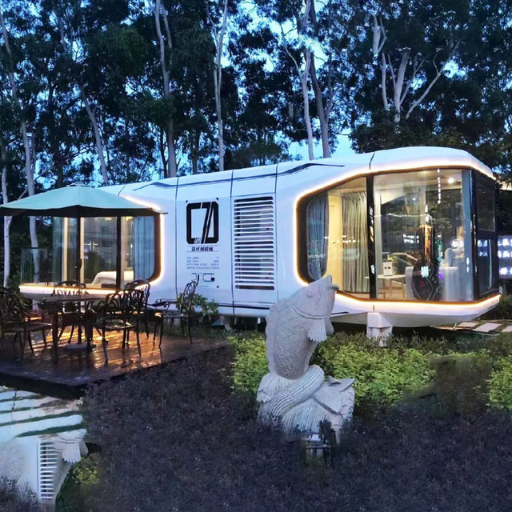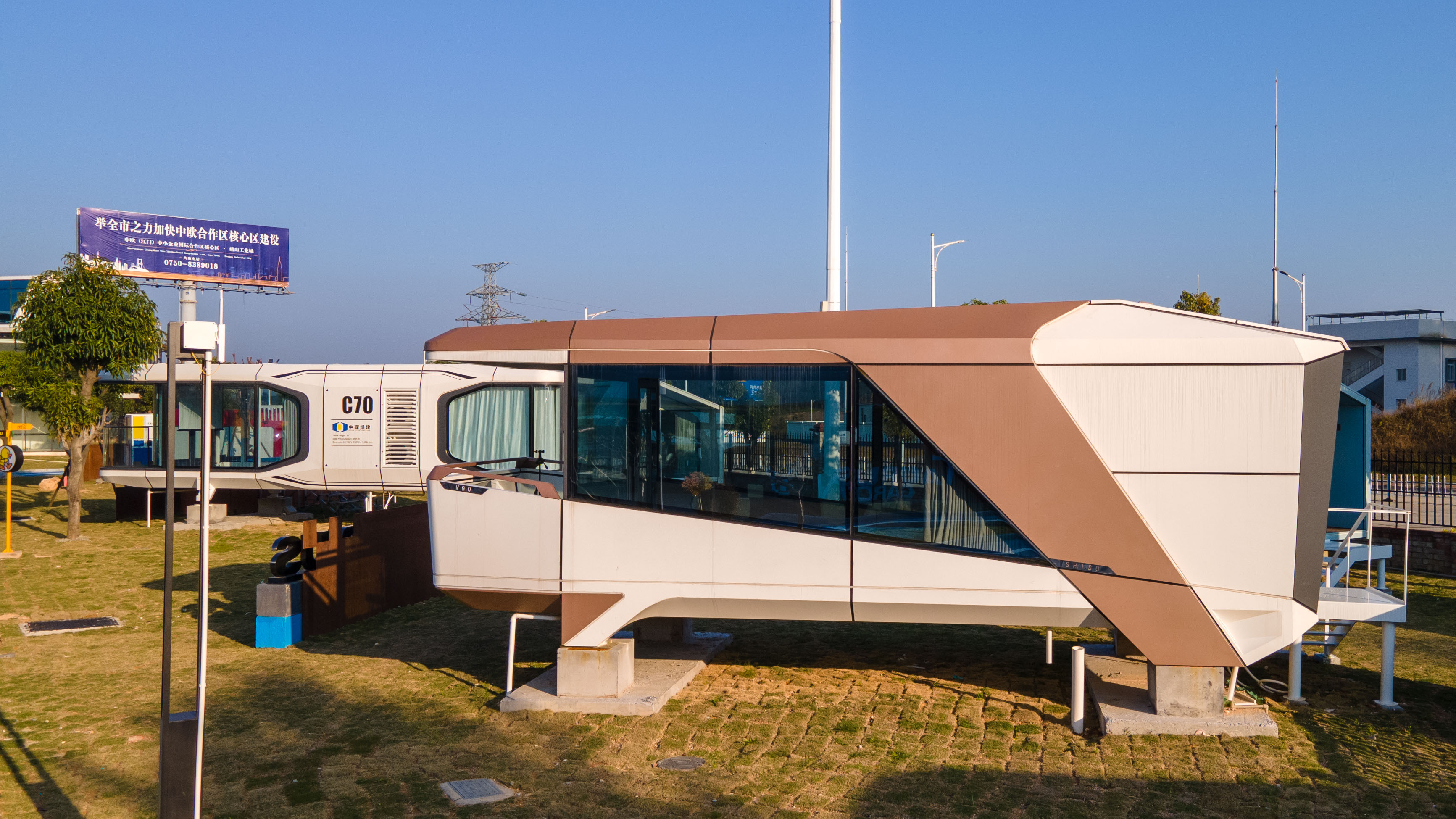Why Capsule Houses Are Gaining Popularity as a Compact Housing Solution
Wiki Article
Uncomplicated Homebuilding With Modern Modular Home Designs

Benefits of Modular Home Designs
Modular home layouts offer countless advantages that make them an enticing option for several home owners. One of the key benefits is cost-effectiveness. Because modular homes are built in a factory setting, contractors can simplify the procedure, reducing labor and material costs, which often converts to reduce prices for purchasers.Additionally, modular homes are recognized for their speed of construction. pod homes. The regulated atmosphere of a factory permits effective assembly, allowing property owners to move into their brand-new house rather than conventional structure techniques would allow
Energy efficiency is another significant benefit. Lots of modular homes are developed with energy-efficient systems and lasting materials, leading to lower utility costs and a minimized environmental impact.
Furthermore, modular layouts supply a high degree of personalization. Property owners can commonly pick from various layouts, materials, and coatings, ensuring that their home fulfills personal choices and way of living demands.
Last but not least, modular homes are developed to fulfill extensive building ordinance and criteria, making sure longevity and safety. On the whole, the combination of affordability, rate, top quality, performance, and modification makes modular home styles an attractive choice for a variety of customers.
The Modular Building Refine
The modular construction procedure includes a systematic approach that significantly varies from conventional building methods. Each module is constructed with the exact same materials and criteria as a site-built home, consisting of insulation, electric circuitry, and pipes systems.As the components are constructed, the site preparation can take location concurrently, consisting of foundation work and utility setups. This identical process substantially lowers the general timeline for completion. Once the modules prepare, they are carried to the structure website, where they are craned right into setting and securely signed up with together.
The final phases involve ending up touches, such as exterior home siding, roof covering, and interior detailing. This structured method not just decreases construction waste however likewise improves power effectiveness via well-coordinated structure practices. Overall, the modular construction process offers a quicker, cost-effective, and environmentally friendlier alternative to conventional home structure.
Modification Options Available
Exploring personalization options in modular home styles enables home owners to tailor their space to their distinct choices and way of livings. Among one of the most appealing aspects of modular homes is the flexibility they provide in design and layout. Homeowners can select from a selection of floor plans, ranging from open-concept rooms to a lot more conventional layouts, ensuring that the home fits their particular requirements.Along with architectural alterations, personalization reaches aesthetic elements. Homeowners can choose from a considerable scheme of finishes, materials, and shades, including cabinetry, countertops, flooring, and house siding. This degree of customization enables locals to produce a cohesive style that mirrors their individual style.
Moreover, modular homes can integrate energy-efficient attributes and smart technology alternatives. Property owners can choose photovoltaic panels, energy-efficient home windows, and advanced heating and cooling down systems, adding to both convenience and energy cost savings.
Lastly, several suppliers supply the possibility to include one-of-a-kind components, such as built-in shelving, custom closets, or outdoor home. This extensive variety of personalization options ensures that modular home designs can be as distinct and practical as the families who inhabit them.
Sustainability in Modular Houses
Sustainability is a crucial factor to consider in modern home building, and modular homes are significantly developed with eco-friendly practices in mind. These frameworks lessen waste with efficient manufacturing processes, as parts are fabricated in a controlled environment (pod homes). This not just minimizes the amount of material discarded throughout building and construction yet also decreases the carbon footprint linked with traditional building techniquesModular homes often incorporate lasting materials, such as redeemed timber, recycled steel, and low-VOC paints, which contribute to healthier indoor air high quality. Many designs incorporate energy-efficient systems, including solar panels, advanced insulation, and high-performance windows, which lower power intake and energy expenses over time.
The modular building and construction approach likewise allows for much better planning of power usage and source monitoring throughout the building lifecycle. By making use of prefabricated elements, building contractors can dramatically lower transportation emissions, as materials are supplied wholesale to the site.
On top of that, the versatility of modular homes enables future upgrades, ensuring that property owners can modify their space to consist of much more sustainable modern technology as it becomes offered. In general, sustainability in modular homes stands for a forward-thinking approach to environmentally responsible living.
Cost-Effectiveness of Modular Structure
Modular homes not just prioritize sustainability however additionally offer significant cost-effectiveness compared to typical construction techniques - pod homes. One of the key financial advantages is the reduction in labor costs. Due to the fact that a significant section of the building and construction process happens in a regulated manufacturing facility environment, labor performance is heightened, causing reduced overall expenses
In addition, using standard products and layouts reduces waste, causing price financial savings that can be passed on to consumers. The moment savings related to modular building likewise add to its cost; projects can be completed in a portion of the time it considers conventional builds, enabling property owners to move in earlier and start gaining from their financial investment.
Additionally, modular homes often incorporate energy-efficient attributes, which can lead to decreased energy costs over time, additional enhancing their cost-effectiveness. Financing options for modular homes are additionally ending up being much more favorable, with many loan providers identifying their worth and stability.
Conclusion
In final thought, contemporary modular home layouts offer a transformative approach to homebuilding, defined by sustainability, modification, and efficiency. Ultimately, modular homes represent a forward-thinking solution that deals with contemporary housing demands and promotes a more sustainable future in residential construction.
Report this wiki page